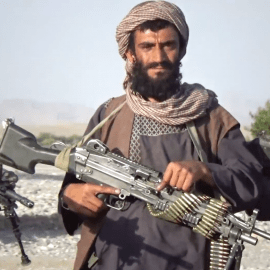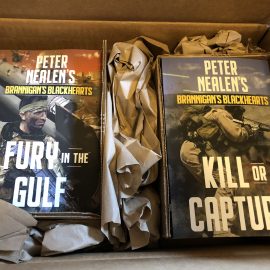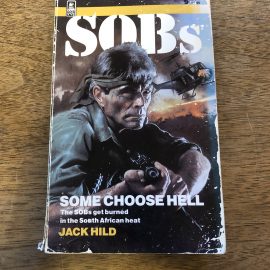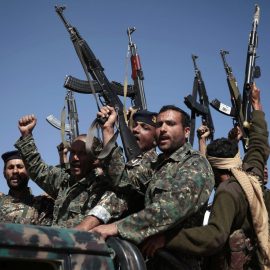A lot of people see the Cold War as distant history. There was even one political scientist/economist who wrote a book in 1992 claiming that the end of the Cold War was “The End of History.” Obviously, that thesis didn’t age well. But even leaving aside the nonsense that with the collapse of the Soviet Union, a new age of democracy and peace had dawned, a lot of us still see a rupture between the Cold War and the present strategic situation. There is no such rupture, though. History doesn’t work in “eras” except in high school textbooks. Yes, this is in reference to my last post. An expansion, if you will. If you want to understand why we seem to be trapped in “endless war,” then you need to understand what happened since World War II, and how that has contributed to where we are now. The Cold War has been described as the multi-decade tensions between NATO and the Warsaw Pact, marked by espionage, massive conventional forces staring at each other across the Iron Curtain, and the Mutually Assured Destruction of thousands of nuclear weapons pointed in both directions. And those were part of it. But the Cold
On Endless War

A recent headline about the failure to withdraw from Afghanistan got me thinking about the “endless war” talk that’s been going on for at least the last decade. It ties in with the “war weariness” narrative that started less than two years into the Iraq War, a war weariness felt by a population that sacrificed little or nothing. They were just tired of seeing it on the news. But there’s something there. The point just is not necessarily what the pundits think it is. “The Long War” as some have called it didn’t start on September 11th, 2001. We’d been clashing with jihadi elements for a long time before that. The Iranian Hostage Crisis began with a Shi’a jihadist revolution, that immediately targeted Americans. It has been pointed out that the US directly supported the Shah, whose Savak secret police could rival the KGB for brutality at times, thus making the US the revolutionaries’ enemy, justifiably. (It should be pointed out that most countries in the region have equally repressive police forces, including the “good” ones who are still our allies.) But the Islamic Revolution, like just about every other revolution in history, promptly proved itself every bit as bad, if
New Paperbacks and Audiobooks Incoming

Some big news this week. As you can see from the photo above, the paperbacks for Kill or Capture and the redesigned cover for Fury in the Gulf came on Friday, so signed copies are now available in the store. In bigger news, back in August I signed a contract with Tantor Media for audiobook versions of the Maelstrom Rising series. Production is now in full swing, and they’re being narrated by Steve Marvel, who has also done audiobooks for my friend JT Patten, author of the Safe Havens and Task Force Orange series. I’ve been talking with Steve in some detail, and I think they’re going to come out well. Escalation is due out on audio on November 12th, and Holding Action on December 10th. So, mark your calendars, especially those who prefer audiobooks. Now, I don’t have a contract for Crimson Star yet. The official word I’ve gotten from Tantor is that they’ll have to see just how well the first two books do before they commit to further volumes. So, if you’ll all spread the word when they come out, I’d appreciate it, since that will go a long way toward ensuring that the rest of the series gets audio versions, too. (This has been a
SOBs – Some Choose Hell

Some Choose Hell is the 9th Soldiers of Barrabas story, and takes the SOBs to South Africa. South Africa in 1985, when apartheid is alive and well. This time, they are hired to protect Bishop Toto, the new black Bishop of Johannesburg. What they don’t know is that they’re intended to be patsies. The South Africans are intent on assassinating the bishop, even as they’ve invited the SOBs in to protect him. It gets more complicated than that; by the time Barrabas, Nanos, Hatton, and Bishop arrive in South Africa, the real Bishop Toto has already been imprisoned by BOSS (the Bureau of State Security), and an impostor put in his place. The impostor immediately begins making all sorts of concessions to the white government, sowing discontent, which will peak with his assassination, after which the real Bishop Toto is to be quietly eliminated. Needless to say, the SOBs interfere, finding themselves at odds with their “employers.” There’s a significant side plot in this one, namely that of Claude Hayes. It had been revealed in earlier books that Hayes spent some time in Africa after Vietnam, though in more of a revolutionary role than the more common anti-Communist mercenary role
